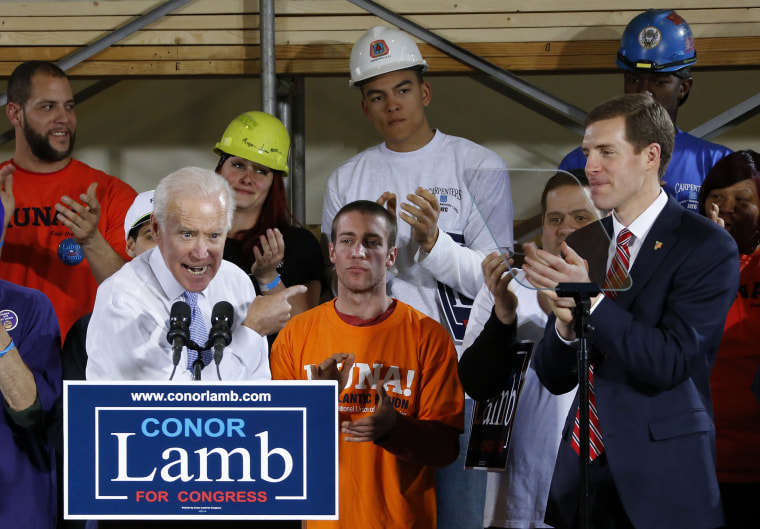It does not take a modern day prophet to proclaim it now appears highly unlikely Joe Biden will be president of the United States. And despite Iowa Senator Joni Ernst’s belief Trumpist efforts to dirty-up the former vice-president during the impeachment trial contributed to his poor showing in Iowa, it does not explain Biden’s previous failed attempts to become the Democratic nominee. Ukraine, Burisma and Hunter Biden were not issues in 1988 when he withdrew from the race following the Iowa caucuses. Or in 2008 when he placed sixth in the New Hampshire primary with 0.22 percent of the popular vote.
And yet, Biden is credited with solidifying blue collar support for Barack Obama in critical swing states in the 2008 and 2012 campaigns. And, as late as mid-January 2020, Biden’s favorability rating among Democrats stood at 71 percent (Source: FiveThirtyEight). Which raises the question, “Why do we like Joe so much, but don’t vote for him when he runs for president?”
When he announced he was joining the fray in April, 2019, pundits pronounced him the front runner and declared, “The nomination is his to lose.” However, in the counter-intuitive world in which I try to immerse myself, just the opposite is true. The election was his to win. And how do you do that? By talking about one’s own strengths and accomplishments. And that is not who Joe Biden is. Humility is an asset in one’s personal life, but not if you are running for president. In politics, a modicum of narcissism goes a long way. Especially, when sharing the stage with someone we know exudes self-aggrandizement, deserved or not.
 Biden is best when he is pumping up someone else. Go back to his 2008 and 2012 campaign appearances. He had no trouble telling voters why Obama was the best choice for president. Or his appearances in support of Democratic congressional candidates in 2018. You could not ask for a better reference or advocate. Pick your own analogy. In baseball, Biden is the setup pitcher, not the closer. In comedy, he is the second banana or straight man, not the star who delivers the punchline.
Biden is best when he is pumping up someone else. Go back to his 2008 and 2012 campaign appearances. He had no trouble telling voters why Obama was the best choice for president. Or his appearances in support of Democratic congressional candidates in 2018. You could not ask for a better reference or advocate. Pick your own analogy. In baseball, Biden is the setup pitcher, not the closer. In comedy, he is the second banana or straight man, not the star who delivers the punchline.
And no one does it better. So, if and when Biden folds his campaign tent, regardless of the eventual nominee, I hope to see Biden in Des Moines, Scranton, Youngstown, Grand Rapids and Racine in September and October. My bet is he can still deliver for anyone who is not Joe Biden.
POSTSCRIPT
If Iowa and the latest polls in New Hampshire are any indication, the Democratic party is as divided as the nation as a whole. Although, there is one difference. The contest between progressives and moderates is not about goals, but the magnitude and pace of change. Whether the topic is health care, firearms legislation or tax policy, the differences center around revolutionary versus evolutionary approaches, between the bold and the immediately possible.
The 2020 Democratic presidential nomination process was the perfect place to debate and eventually reconcile those differences. In normal times, that would have been the case. But the prime objective of defeating Donald Trump, changed the arc of the contest. It was no longer a policy debate, which approach is best for the country. Instead, the focus was on which path would draw in enough voters to evict Trump from the White House.
This dialectic became further muddied by Joe Biden’s entry into the race, as his justification was and remains he had the best chance of beating Trump in November, regardless whether you agreed with him on the issues. His wife Jill said as much in an August 20, campaign rally in Nashua, New Hampshire.
Your candidate might be better on, I don’t know, health care, than Joe is, but you’ve got to look at who’s going to win this election. And maybe you have to swallow a little bit and say, “Okay, I personally like so and so better,” but your bottom line has to be that we have to beat Trump.
What Jill Biden forgets is that the only thing that matters is Democratic turnout. Therefore, debate and reconciliation of policies and actions held by candidates across the ideological spectrum is critical for both wings of the party to show up on election day. And in that sense, Iowa and New Hampshire have served a purpose, bringing the nomination process to a place where it should have been in the first place.
For what it’s worth.
Dr. ESP